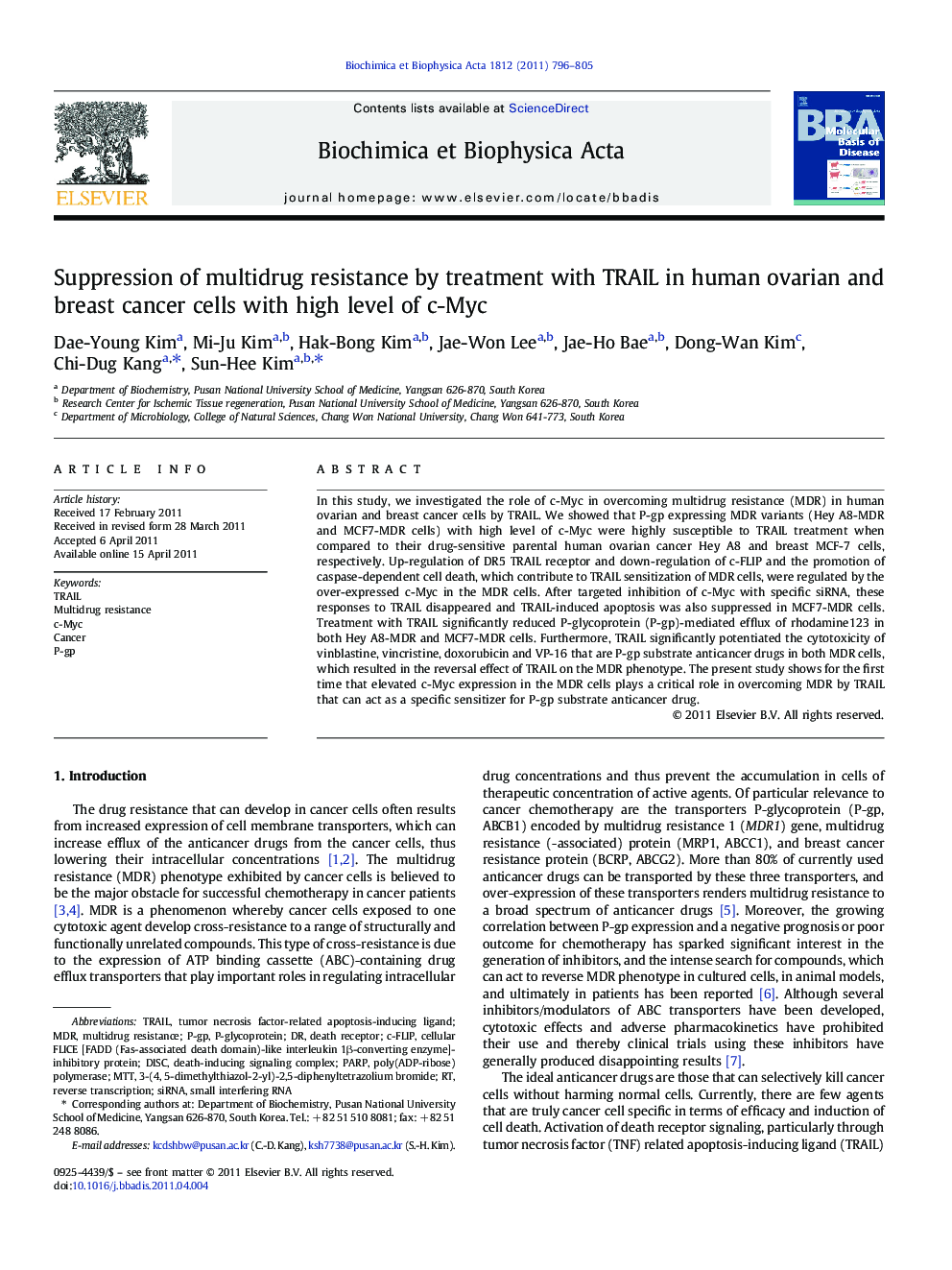| Article ID | Journal | Published Year | Pages | File Type |
|---|---|---|---|---|
| 1905152 | Biochimica et Biophysica Acta (BBA) - Molecular Basis of Disease | 2011 | 10 Pages |
In this study, we investigated the role of c-Myc in overcoming multidrug resistance (MDR) in human ovarian and breast cancer cells by TRAIL. We showed that P-gp expressing MDR variants (Hey A8-MDR and MCF7-MDR cells) with high level of c-Myc were highly susceptible to TRAIL treatment when compared to their drug-sensitive parental human ovarian cancer Hey A8 and breast MCF-7 cells, respectively. Up-regulation of DR5 TRAIL receptor and down-regulation of c-FLIP and the promotion of caspase-dependent cell death, which contribute to TRAIL sensitization of MDR cells, were regulated by the over-expressed c-Myc in the MDR cells. After targeted inhibition of c-Myc with specific siRNA, these responses to TRAIL disappeared and TRAIL-induced apoptosis was also suppressed in MCF7-MDR cells. Treatment with TRAIL significantly reduced P-glycoprotein (P-gp)-mediated efflux of rhodamine123 in both Hey A8-MDR and MCF7-MDR cells. Furthermore, TRAIL significantly potentiated the cytotoxicity of vinblastine, vincristine, doxorubicin and VP-16 that are P-gp substrate anticancer drugs in both MDR cells, which resulted in the reversal effect of TRAIL on the MDR phenotype. The present study shows for the first time that elevated c-Myc expression in the MDR cells plays a critical role in overcoming MDR by TRAIL that can act as a specific sensitizer for P-gp substrate anticancer drug.
Research Highlights► c-Myc is responsible for high susceptibility of MDR cancers to TRAIL. ► TRAIL increases cytotoxicity of anticancer drugs in MDR cells by degradation of P-gp. ► Up-regulation of DR5 contributes to sensitization of MDR cells to TRAIL. ► MDR is overcome by TRAIL in MDR cancer cells overexpressing c-Myc.
